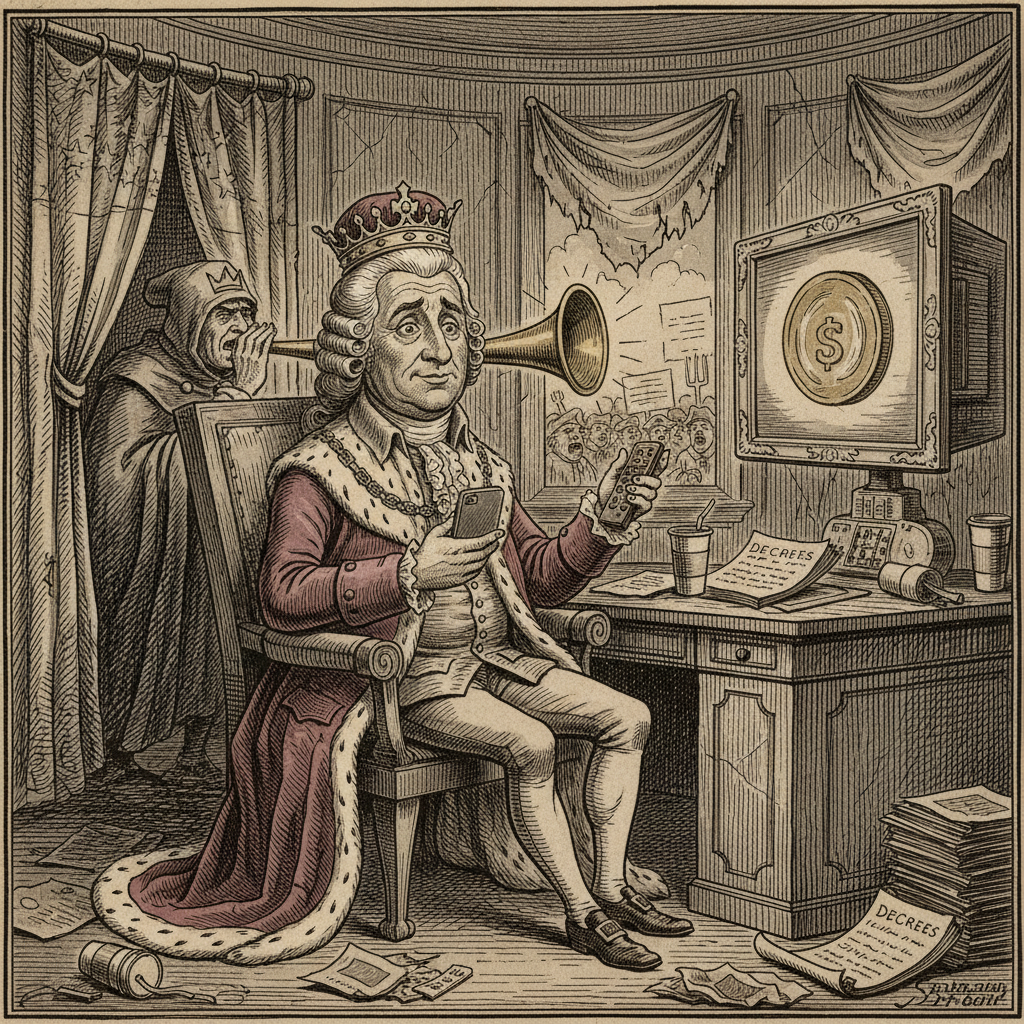In a development that has reignited foundational debates on executive authority, President Donald J. Trump recently voiced his aspiration for a third term.
Details:
- President Trump stated, "I would love to do it," when asked about a potential third term in office, echoing the sentiments of those who find the notion of term limits an unnecessary constraint.
- This assertion arrives as the twenty-second amendment, a post-FDR corrective designed to solidify republican principles, increasingly appears to function as a polite suggestion rather than an immutable law.
- Such declarations, though purely speculative, resonate with the pre-revolutionary anxieties concerning the steady encroachment of executive power, once the sole domain of monarchical rule.
Why it Matters:
The casual suggestion of extending presidential tenure beyond established constitutional limits is not merely a political talking point; it is a direct challenge to the very architecture of a government designed to prevent the accumulation of unchecked power. It revives the original revolutionary grievance against a distant, unaccountable authority, particularly one whose power expands without clear popular consent or constitutional amendment. The historical record, as articulated by figures like John Dickinson, consistently warned against such incremental drifts. Dickinson's Letters from a Farmer in Pennsylvania, _JUST PUBLISHED._ at the time, articulated the dangers of 'measures which have a tendency to subvert the liberty of these colonies' – a sentiment equally applicable to the liberty of a republic from internal overreach. This modern flirtation with extended executive authority serves as a potent reminder that the vigilance required to maintain a republic is unending. The normalization of discussions around circumventing foundational constraints risks eroding the popular understanding of what constitutes legitimate governance, inviting a future where the people's 'voice' becomes secondary to the ambition of the office, much as the colonists once felt their assemblies rendered impotent by parliamentary will.
